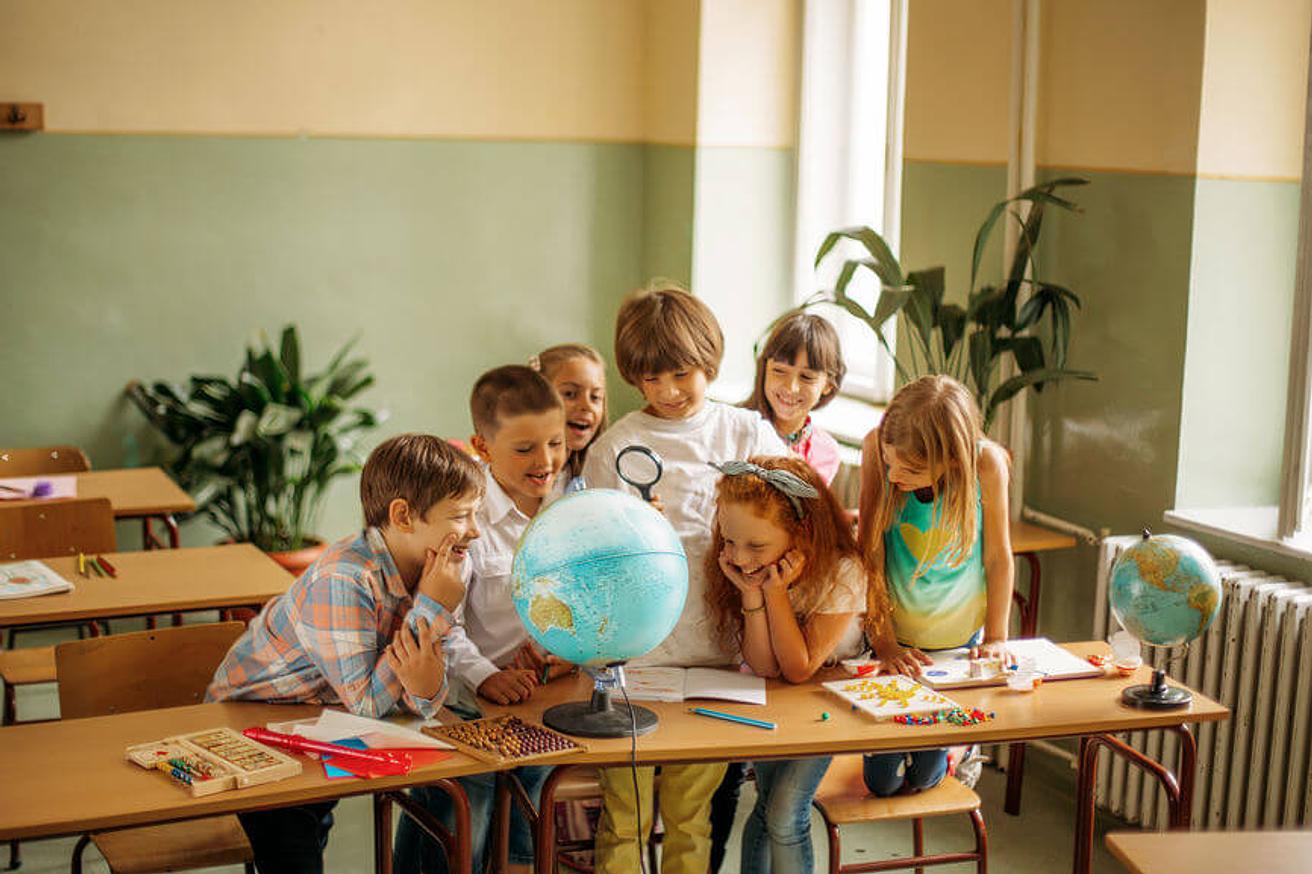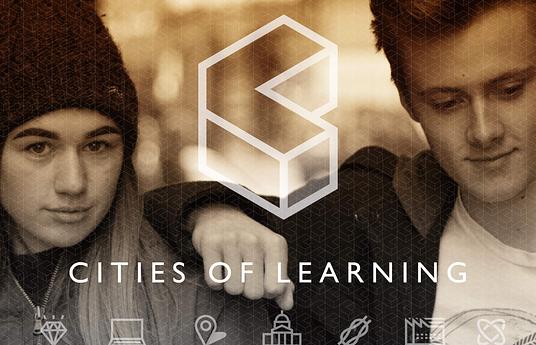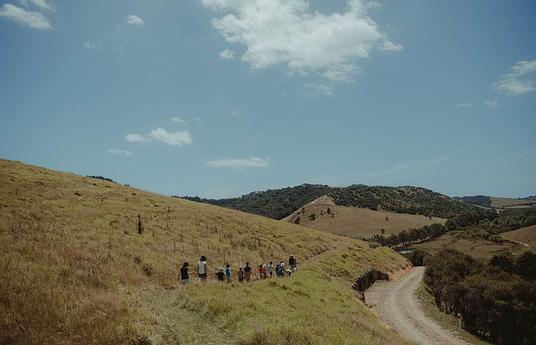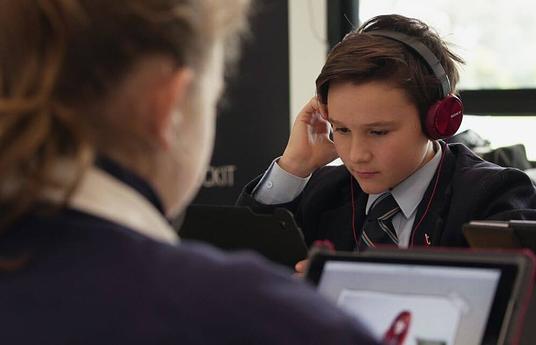One of the most powerful educational tools at our disposal is already available to us, our communities. All around us every day are groups of people with unique expertise, different life experiences and lessons that every child could be benefitting from. However, schools often act separately from the communities in which they’re based, and often these valuable – and free-of-charge – resources are laid to waste.
By involving our communities in the educational process we give children real-world learning opportunities, which makes learning more memorable and impactful, as they can see a reason as to why they’re learning what you’re teaching. Motivational issues occur when young people see little attachment between school and their outside lives. Connecting the dots for students therefore can increase their motivation, improve their memory recollection and, hopefully, go on to improve their grades.
says Josh Schachter, Founder of CommunityShare, an online platform that matches local expertise and knowledge with the needs and goals of teachers. “Education can no longer just be seen as a teacher’s job that happens within the confines of classroom walls. We all have social, intellectual, cultural and creative capital to share.”
Through work like Schachter’s at CommunityShare, we can create ‘human libraries’ where educators can find the local expertise they need to engage students in their learning and open up a world of possibilities. “Through in-person learning experiences with community partners, students become more engaged in school because of the increased ‘real-world’ relevance in the curriculum, discover new career possibilities and expand their access to social capital and caring adults,” explains Schachter. “By directly engaging individual professionals, corporations, nonprofits, parents, academics, and others in schools, CommunityShare also increases the public's understanding of education and their agency to become advocates for it.”
Sharing capabilities and expertise can help to address inequalities within our education systems too. Linking children to their wider communities can help show children what else they could be, outside of their own social circles and expose them to careers that they may otherwise not know much about. This is particularly relevant to today’s world as the job market has changed drastically over the last couple of decades and many parents may not know the kinds of careers that are open to their children today.
“Studies show that young people from the least advantaged backgrounds are significantly less likely to have access to a whole range of opportunities to develop the social and cultural capital which help to drive progression in learning and work,” explains Rosie Clayton, Associate Director of Cities of Learning RSA, an initiative that creates informal and in-workplace learning opportunities for young people. “They also have much greater barriers to participating in extracurricular activities and accessing broader informal learning opportunities, including work experience. This not only impacts their progression in the labour market, but also important social and civic outcomes, such as the ability to be active and effect change in their communities.”
Through connecting different learning experiences that happen outside of school, Cities of Learning helps students to gain new knowledge, skills and capabilities; including revealing to them new careers and opportunities they may not have known about otherwise. “Through working with local civic leaders we bring together frontline learning providers across formal and informal education, skills, training, and youth development to map out all the different opportunities available across a locality, create thematic links and pathways between opportunities, and design digital badges which recognise different forms of learning, in line with the internationally recognised Open Badge Standard,” explains Clayton. “Digital badges create a new language for learning and skills development, which helps learners identify, develop and articulate their skills and capabilities in different contexts.”

By breaking outside the traditional means of education, we can help children to truly discover and understand their talents, as Clayton goes on to say, “Learners of all ages and backgrounds have hidden skills, talents and interests that often aren’t recognised by the broader education system, and inequality of access is a fundamental issue of our time.” It’s important for these other skills to be recognised in education, to show every child that they have something unique and special to offer the world and to help create a more equal society. Digital Badges, as in Cities of Learning, is one way of formally recognising these skills and gives children the language they need to articulate the value they could bring to a workplace or other situation.
Connecting children with their local community can also help children to positively affect change in their own personal lives, including their physical and mental health. “Communities should be involved in education in order to harness the collective responsibility of educating our children, and in educating the whole human being,” explains Joanna Rhodes, Artistic Director of Challenge 59, a dance and film initiative in London. The project helps students and teachers actively engage with health and wellbeing issues within their communities through dance and film. “Learning happens all of the time and is not confined to the hours of a school day, though schools can be at the heart of local communities,” Rhodes adds.
Through Challenge 59, students create 59 second films that address health concerns that are affecting their communities. These films are then shared within their communities, giving children a voice and connecting them with their local communities on shared issues they all face. Creating these films transforms children into active, engaged citizens and learners, a mutually beneficial positive outcome for schools and communities alike. Rhodes explains, “By amplifying the children’s voice and making visible their ideas, their sense of empowerment as active citizens to make a difference grows.”
This co-creation of the films between the students and their teacher, with real-world consequences, transforms education into an active, engaging activity. “Co-creating means that our creative processes enable children to take ownership of the work and where children perceive to have ownership, engagement deepens.”
Rhodes also described how there was an increase in the percentage of students who enjoyed going to school after Challenge 59, and that students increased their resilience and were able to feel calmer and feel more successful! It can be difficult to show children the meaning of their school work, but through initiatives like Challenge 59, students are able to see how their work truly holds power and is important for the real world too – not just their own education. Increasing motivation in this way allows for learning to become a natural, joyous process as well as helping students to improve their own physical and mental wellbeing.
In a time where the world feels more divided than ever, connecting children with their local communities holds a whole wealth of positives for their education and wellbeing. From opening up new job opportunities to increasing their motivation in school, to recognising the unique qualities children have to giving them a sense of belonging, our communities can truly enrich the educational experience. And who knows, maybe we all might just learn something in the process too!




